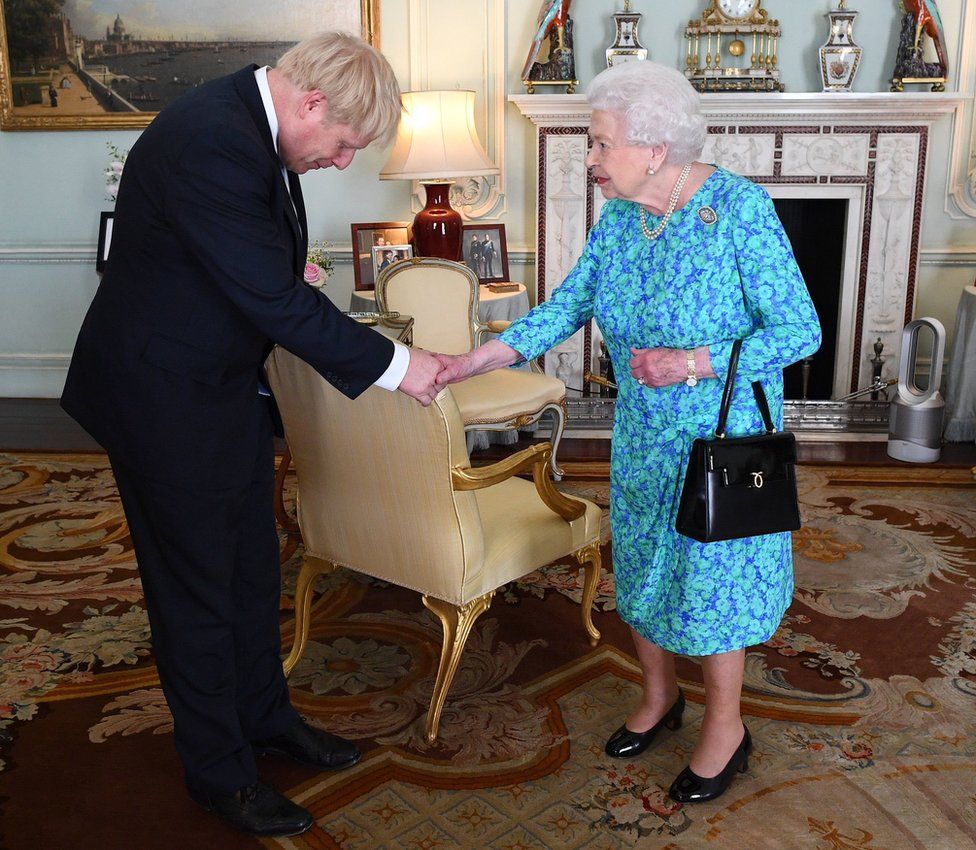Parliament suspension: What was the Queen's role?
- Published

It is most unlikely we will ever get any authoritative insight into what the Queen thought about the prime minister's request for her to suspend Parliament.
But there are some things we can say with a fair degree of certainty.
Throughout the 67 years of her reign she has been punctilious about the principles of a constitutional monarchy.
One of those principles is that she does not involve herself in politics.
She has played her part with what even most of her critics would accept has been a high sense of duty.
In return, she and her advisers would always hope and expect that her governments would accord her the respect of not involving her in controversial decisions.
I say decisions, though the reality is that once it became clear that the prime minister was seeking the prorogation of Parliament, the Queen and her closest advisers will have known that she had no choice other than to accede to the request.
In theory there are areas, known as the "royal prerogative", where the monarch does have discretion, but in practice that discretion is a fantasy.
The United Kingdom has a head of state who has always followed precedent and observed the rock-solid convention that as a constitutional monarch she is bound to follow the formal advice of her prime minister.
To have rejected such advice would have taken us into even deeper constitutional waters, in which the monarch might feel emboldened to follow his or her private instincts rather than the guidance of the duly elected government.
So when the Privy Council met at Balmoral the Queen did the only thing she could do.
But I believe we can say that these events will have caused significant unease within the palace. Their absolute priority has been to keep her away from the Brexit debate.
Boris Johnson, the 14th British prime minister of her reign, has chosen to involve her in a controversial decision.
There will be concern about that, and about the wider impact of such a divisive decision on an already inflamed national dialogue.
- Published29 August 2019
- Published28 August 2019
- Published29 August 2019